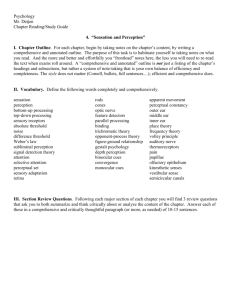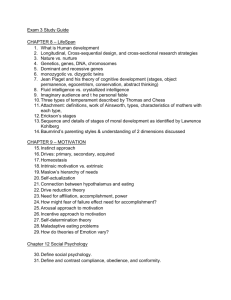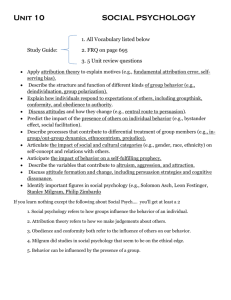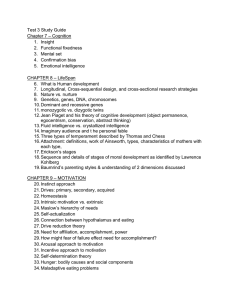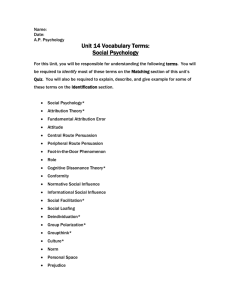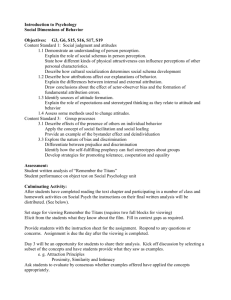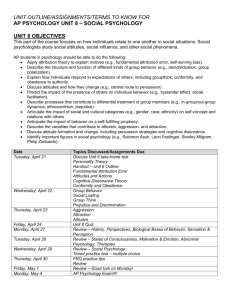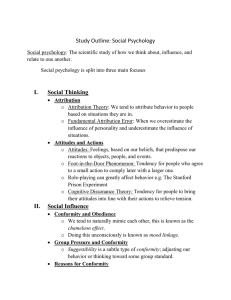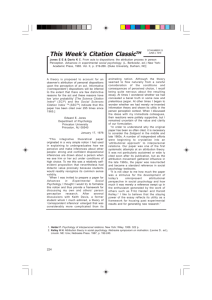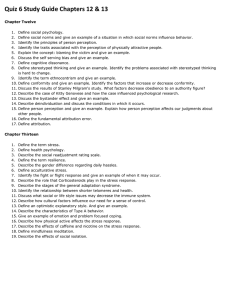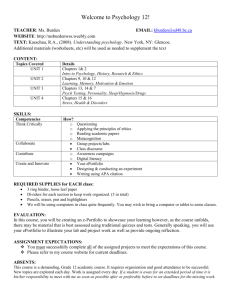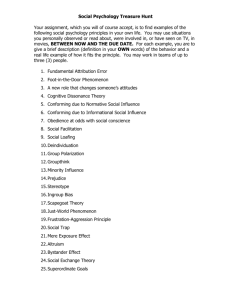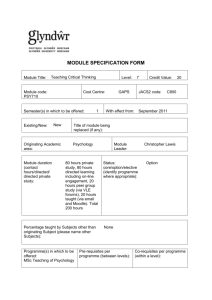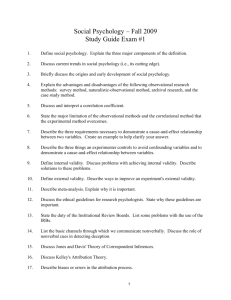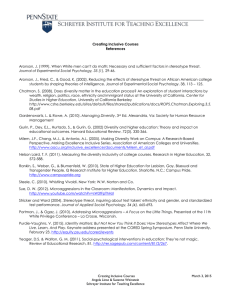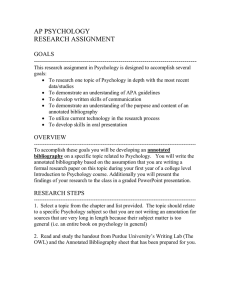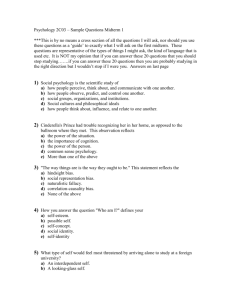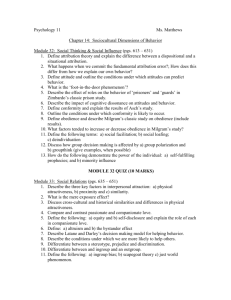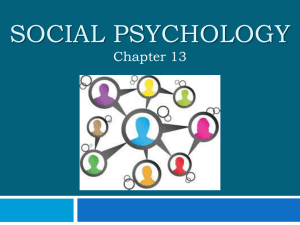Psychology Mr. Detjen Chapter Reading/Study Guide 13. “Social
advertisement
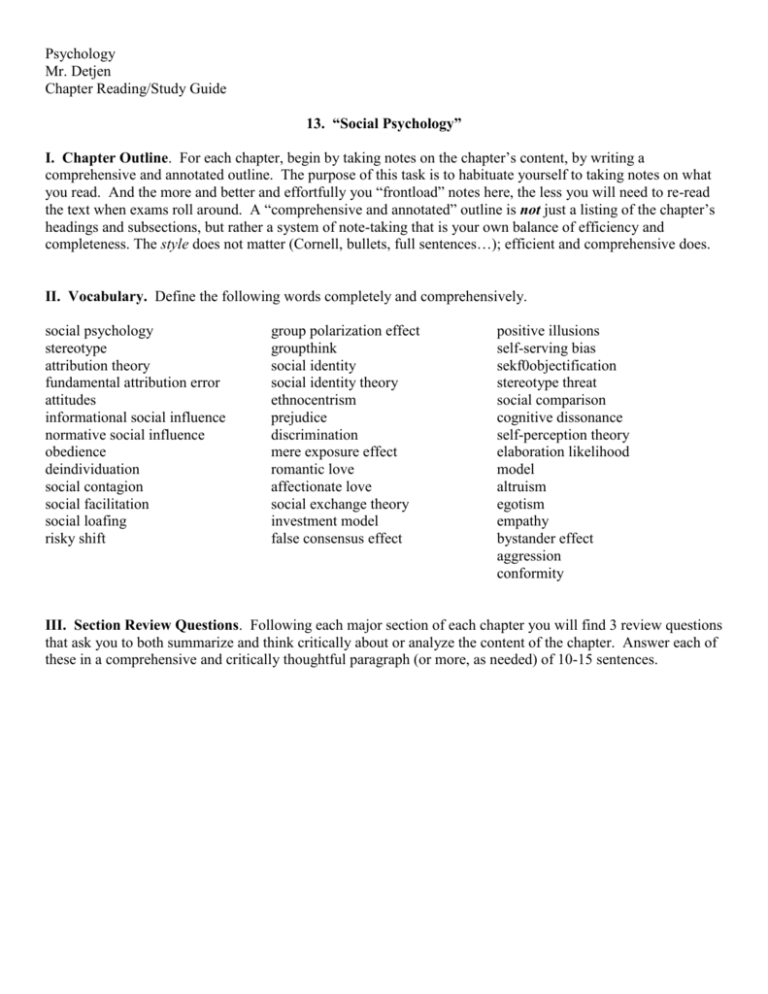
Psychology Mr. Detjen Chapter Reading/Study Guide 13. “Social Psychology” I. Chapter Outline. For each chapter, begin by taking notes on the chapter’s content, by writing a comprehensive and annotated outline. The purpose of this task is to habituate yourself to taking notes on what you read. And the more and better and effortfully you “frontload” notes here, the less you will need to re-read the text when exams roll around. A “comprehensive and annotated” outline is not just a listing of the chapter’s headings and subsections, but rather a system of note-taking that is your own balance of efficiency and completeness. The style does not matter (Cornell, bullets, full sentences…); efficient and comprehensive does. II. Vocabulary. Define the following words completely and comprehensively. social psychology stereotype attribution theory fundamental attribution error attitudes informational social influence normative social influence obedience deindividuation social contagion social facilitation social loafing risky shift group polarization effect groupthink social identity social identity theory ethnocentrism prejudice discrimination mere exposure effect romantic love affectionate love social exchange theory investment model false consensus effect positive illusions self-serving bias sekf0objectification stereotype threat social comparison cognitive dissonance self-perception theory elaboration likelihood model altruism egotism empathy bystander effect aggression conformity III. Section Review Questions. Following each major section of each chapter you will find 3 review questions that ask you to both summarize and think critically about or analyze the content of the chapter. Answer each of these in a comprehensive and critically thoughtful paragraph (or more, as needed) of 10-15 sentences.
